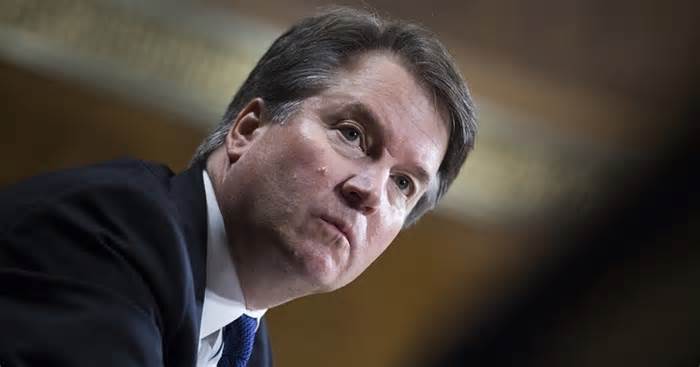Supreme Court Justice Brett Kavanaugh tried to persuade his colleagues not to make a decision about Trump’s tax records that were requested by Congress.
According to a Wednesday report from CNN, the Trump-nominated justice urged his colleagues to consider that Trump v. Mazars USA, LLP, a case that dealt with subpoenas issued by the House Oversight Committee for Trump’s financial records, may violate the “political question” doctrine. Though unsuccessful, sources said the argument would have prevented the Supreme Court from making a determination on the case.
The political question doctrine, also referred to as the justiciability doctrine, is the belief that federal courts, understood as an apolitical branch, should not settle inherently political questions presented. In 1962, the Supreme Court ruled in Baker v. Carr to expand the “political” questions that it could adjudicate in regard to legislative apportionment. However, the high court upheld lower court decisions in the 1993 Nixon v. United States case regarding rules of impeachment, drawing a clear line on issues it could adjudicate.
In April, the court ordered the parties involved in the Trump taxes case to file “supplemental letter briefs” to determine whether or not the doctrine applies. But throughout their conversations, the justices reportedly decided they had the authority to make a decision based on the important co-equal relationship between the executive and legislative branches.
During oral arguments earlier this spring, both conservative and liberal justices expressed concern that Congress’s arguments for subpoenaing Trump’s financial records may amount to harassing a president. Associate Justice Stephen Breyer described the House as requesting “a lot of information, and some of it’s pretty vague.”
Trump sued to prevent the accounting firm from releasing the financial records, arguing that it would serve no legitimate legislative purpose. The House, however, argued that lawmakers need the documents to determine whether it is necessary to amend ethics-in-government laws. The high court went on to side against the House in a 7-2 ruling.
Kavanaugh also apparently wrote a series of memos in mid-March asking his fellow justices to avoid making a decision on a landmark abortion case. The case, June Medical Services LLC v. Russo, involved a Texas law that required physicians who perform abortions to have admitting privileges in nearby hospitals. Sources said Kavanaugh wanted to return the case to lower courts for fact-gathering on how burdensome the requirement was to facilities.
A majority of the court decided that it had the grounds to make a determination in the case, ruling 5-4 in favor of abortion advocates. Breyer, writing for the majority, said the court “found that conditions on admitting privileges common to hospitals throughout the State have made and will continue to make it impossible for abortion providers to obtain conforming privileges for reasons that have nothing to do with the State’s asserted interests in promoting women’s health and safety.”

